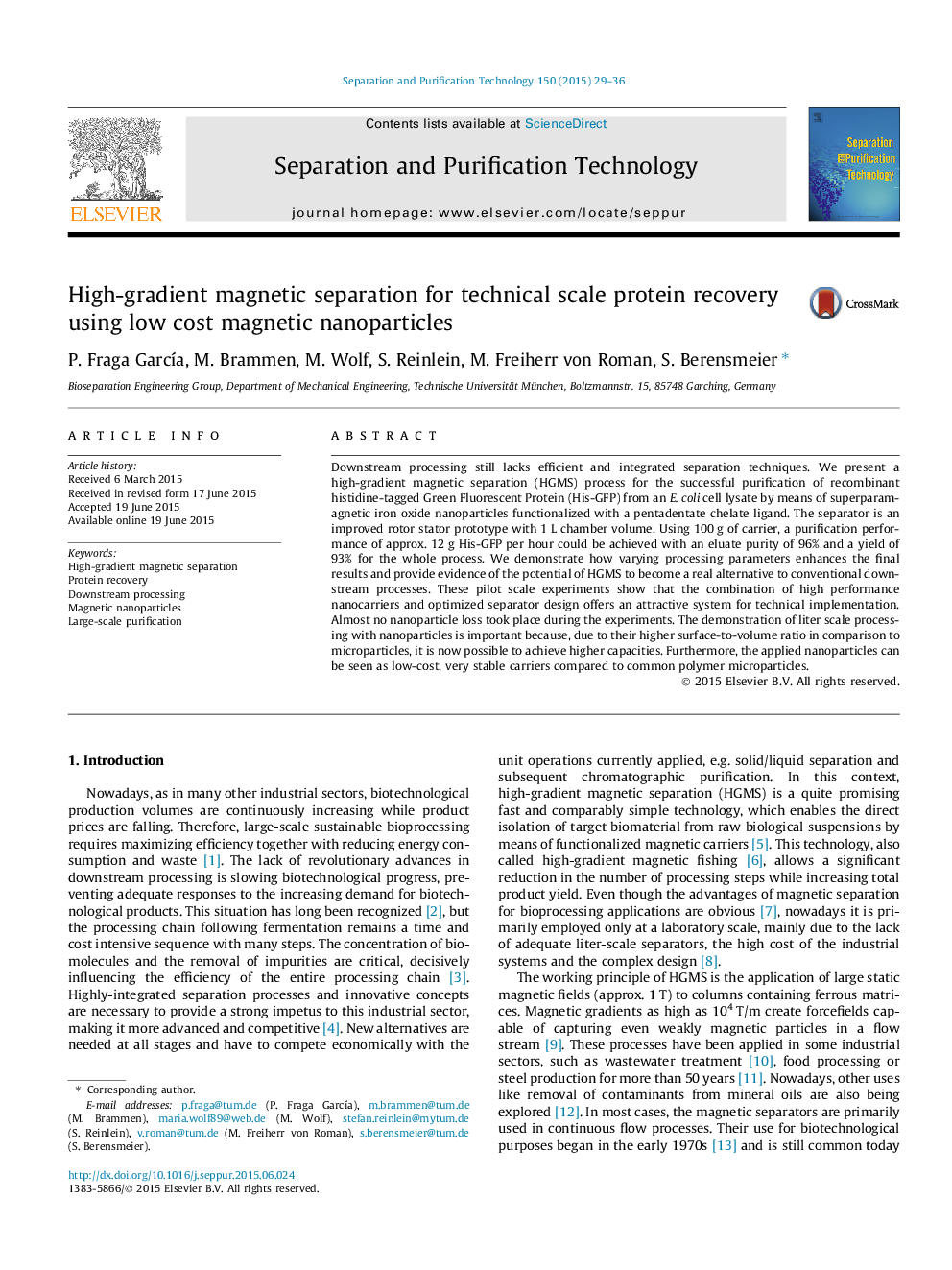| کد مقاله | کد نشریه | سال انتشار | مقاله انگلیسی | نسخه تمام متن |
|---|---|---|---|---|
| 640449 | 1456969 | 2015 | 8 صفحه PDF | دانلود رایگان |
• Protein recovery using magnetic nanoparticles for large-scale HGMS.
• 12 g His-GFP per hour are recovered from a cell lysate with purity >96%.
• The efficiency, robustness, low cost and easy handling of the process are shown.
• The potential for enhancement of the concentration factor is discussed.
• The suitability of HGMS for industrial purposes is demonstrated.
Downstream processing still lacks efficient and integrated separation techniques. We present a high-gradient magnetic separation (HGMS) process for the successful purification of recombinant histidine-tagged Green Fluorescent Protein (His-GFP) from an E. coli cell lysate by means of superparamagnetic iron oxide nanoparticles functionalized with a pentadentate chelate ligand. The separator is an improved rotor stator prototype with 1 L chamber volume. Using 100 g of carrier, a purification performance of approx. 12 g His-GFP per hour could be achieved with an eluate purity of 96% and a yield of 93% for the whole process. We demonstrate how varying processing parameters enhances the final results and provide evidence of the potential of HGMS to become a real alternative to conventional downstream processes. These pilot scale experiments show that the combination of high performance nanocarriers and optimized separator design offers an attractive system for technical implementation. Almost no nanoparticle loss took place during the experiments. The demonstration of liter scale processing with nanoparticles is important because, due to their higher surface-to-volume ratio in comparison to microparticles, it is now possible to achieve higher capacities. Furthermore, the applied nanoparticles can be seen as low-cost, very stable carriers compared to common polymer microparticles.
Figure optionsDownload as PowerPoint slide
Journal: Separation and Purification Technology - Volume 150, 17 August 2015, Pages 29–36
